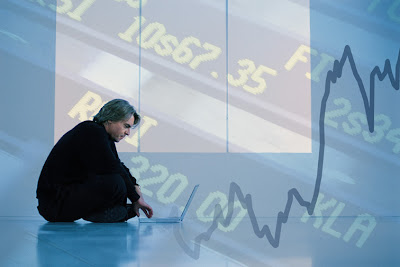
As many of you on this blog know, an article appeared last week in the blogosphere saying ‘Day Trading is Dead’. The article made the assertion that the job I love, my livelihood, was a dead business. There’s no money in day-trading anymore; that is the conclusion the article reached.
After my good friend Mike Lee’s great response to the article, I felt compelled to weigh in on the debate. I feel it is a discussion that is worth having in order to clear up any misconceptions about the business. In my opinion, to say day trading is dead is like saying America’s pasttime is dead because of the steroid era. Please. If I’ve learned anything over the past 10 years of my career, it’s that to make it in this business is to understand the cyclical nature and evolution of the stock market. Day trading has supposedly flat-lined on several prior occasions, but somehow, magically, it apparently has risen from the dead. When the dot-com bubble burst and the market settled into a lull, day trading was dead. When we went from fractions to decimals in stocks, day trading was dead. After the market cut itself in half in 2008, day trading was dead.
The reason certain people are successful in this business is that they have a certain discipline, game plan, attitude and overall open-mindedness to what they see in front of them every day. Look, I make no bones about it, day trading was a lot easier when I started. Guys would come in at 9:30, be up $50k at 10:00am and call it a day. The problem is, a lot of those same guys couldn’t hack it when the bubble burst in 2000-2001. These simpletons were so used to buying relentlessly, that when the music stopped they were utterly confused. They stubbornly bought every pullback, even adding when stocks accelerated to the downside. It was so engrained in their head to be a buyer, they crashed out of the business when conditions changed. The ones who are still trading today adapted to the changes they saw in front of them. There was a retrenchment in the industry, and the survivors became stronger and smarter. There are still a lot of us who have found consistent success day trading as a career.
This is my profession, almost surely the last job I will ever need to have. I have gone through many, many different cycles in this market. The internet bubble, the collapse of the banking system, and bear markets and bull markets in between. The reason I make money consistently is because I trade only when I have an edge. There is nobody holding a gun to my head telling me I have to trade certain stocks at certain times; I work my tail off to find the unusual opportunities and to execute soundly. There are days when the money flows easier than others, but the end result is the same. You get what you put into this job. Plain and simple. Making money is hard work, no matter what your profession is.
If day trading was dead, last month I would not have had my best monthly income since 2008. If day trading was dead, I would have a down month. In reality, I haven’t had a losing month in nine years. It’s amazing how that happened, considering day trading is dead and all. And it’s not a coincidence; the same size is too big to boil it down to luck or good fortune. I work hard to make the money I make. I have a set of rules that I follow religiously. I adhere to my gameplan every day without fail. If I do deviate from my rules even slightly, I immediately make the adjustments necessary to right the ship (i.e. last month’s slump). In the end these rules have made me the trader that I have been for the last 10 years. Every day there is money to be made in the market, and some days it’s harder to find than others. Day trading may be more difficult than it used to be, but it’s far from impossible. Most of the sour grapes, I feel, come from the people who can’t cut the mustard.



